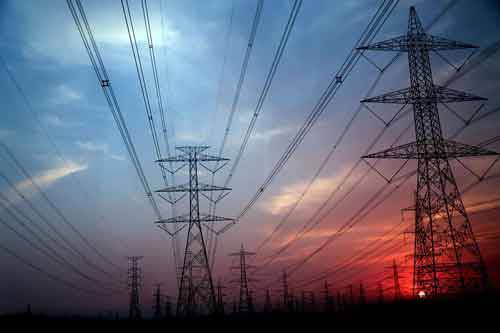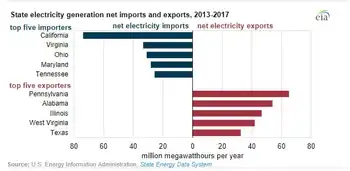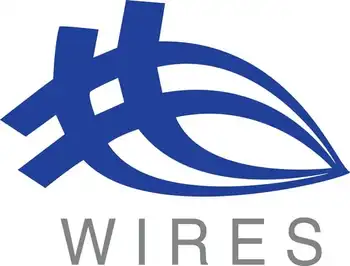Smart Meters Could Revolutionize Summer Living
According to the Edison Electric Institute (EEI), 60% of a typical summer electric bill is devoted to air conditioning, and that could jump to 75% based on the weather.
I live in a century home, and I don’t have central air. Between the attic fan, the dehumidifier in the old stone basement, a couple of room air conditioners, and the pool pump, my summer bills soar. (I just went to shut off the pool pump while I’m writing, having just read in an EEI brochure that the pool pump is the worst kind of electricity hog.) That’s why the EEI is promoting the “smart” grid concept with advanced meters and two-way communication capabilities.
Utilities are taking consumption-management programs like time-of-day pricing and peak-use control to the next level. Real-time electricity pricing information is being coupled with automated HVAC and home control technology to give consumers the ability to schedule and run appliances when power costs are lowest.
This burgeoning “prices to devices” ecosystem creates tremendous opportunity for electronic designers—for developing meters and smart thermostats and controllers, and also for the supporting communications systems. Once the infrastructure is in place, myriad additional appliances can be tied in to the network: intelligent air conditioners, water heaters, dishwashers, dryers, washing machines, and, of course, pool pumps!
While California is working toward mandating smart meters via Title 24 initiatives, local utility companies throughout the nation are in various stages of test and implementation. Beyond leveling out energy demand, the systems benefit the utilities by eliminating manual meter readings, providing direct alerts of power outages, and facilitating broadband-over-powerline.
Pepco HoldingsÂ’ SmartPowerDC is a pilot program in the District of Columbia. Pepco is testing an advanced metering infra- structure while investing in substations and distribution automation to support the system. Beyond energy savings, said PepcoÂ’s Mack Wathen, smart metering provides customers more accurate and timely billing, eliminating estimated bills and attendant customer service inquiries.
ConEdison has 20,000 homes in the New York metro area participating in a demand-management program using the Sky-Tel paging infrastructure to remotely control air conditioning in homes equipped with Carrier’s ComfortChoice two-way communicating thermostats. As an incentive to participate, consumers get the programmable Carrier thermostat installed at no charge, along with a cash “signing bonus” of $25.
Customers can override the automated control when they want. In turn, ConEdison can, at the press of a button, conserve 27 MW by paging the thermostats at the participantsÂ’ homes and turning off their A/C until demand ebbs.
According to Michael Marks, president of Applied Energy Group (the company managing the ConEdison program), Sky-Tel views such machine-to-machine communications as a key to the future for its paging infrastructure, which is otherwise losing business to text messaging and wireless e-mail alternatives.
ComEd in Chicago has one of the country’s most advanced metering programs, with 65,000 customers under remote air-conditioning control. Its Load Guard program and Web site, wattspot.com, let customers see real-time electric prices and determine the prices they want for cycling their air conditioning. They can pick a “green” program for cycling in lowest demand periods or a “blue” program, which still offers a discount over flat-rate pricing but has a higher threshold and more run time.
According to Paul Heitmann of Comverge, the program manager for ComED, ComEd is looking into the remote control of appliances in the near future, noting that Comverge has recently joined the ZigBee Alliance. Says Heitmann, “The question becomes ‘where to stop’ when looking at the potential for communicating and cycling appliances at off-peak times of day.”
To help speed the development of these smart systems, the electric companies are supporting the Electric Power Research Institute, a nonprofit center for public interest energy and environmental research. In fact, the EPRI has opened the Living Laboratory for Energy Efficiency, a facility to test the performance and interoperability of smart power-delivery systems and to facilitate “prices to devices” standards and infrastructures.
Tom Reddoch, manager of the EPRI program, said the Living Lab fills an important third-party role in evaluating the compatibility of devices and standards. The lab will determine whether new devices perform as advertised and if they can be “mixed and matched” in the open ecosystem the utilities need to create.
Envisioning and engineering this new infrastructure offers an exciting vision to consider while relaxing poolside this summer. Now if my local electric provider would offer me a smart meter with real-time, discounted pricing, I might be able to really enjoy my summer living again.
Related News

California Considers Revamping Electricity Rates in Bid to Clean the Grid
LOS ANGELES - California is contemplating a significant overhaul to its electricity rate structure, a move that has ignited debate among environmentalists and politicians alike. The proposed modifications, spearheaded by the California Energy Commission (CEC), would introduce a fixed fee on electric bills and lower the rate per kilowatt-hour (kWh) used.
Motivations for the Change
Proponents of the plan argue that it would incentivize Californians to transition to electric appliances and vehicles, a critical aspect of the state's ambitious climate goals. They reason that a lower per-unit cost would make electricity a more attractive option for applications like home…





